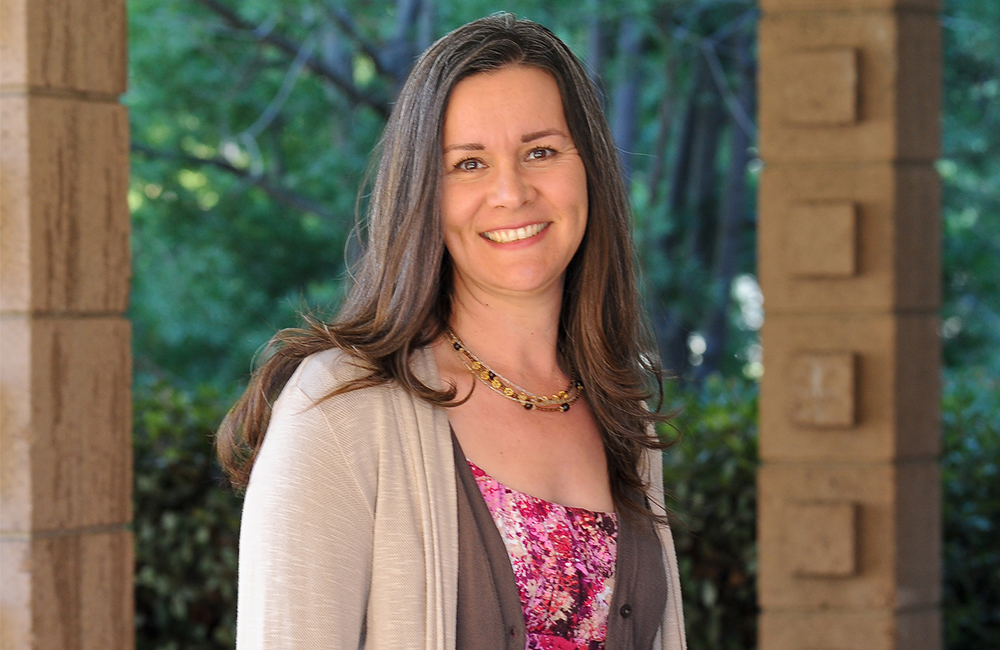Gamiz Named an Engaged Scholar by Campus Compact
October 15, 2019
Gabriela Gamiz, director of community engagement at Harvey Mudd College, has been selected as part of the inaugural 2019–2020 Engaged Scholars Initiative for the Western Region Campus Compact. In her ongoing efforts to strengthen the community engagement programs at HMC, Gamiz will use this opportunity to work on documenting the experiences of historically underrepresented students in STEM as they interact with community engagement projects.
Since 2015, Gamiz has worked to foster relationships between the College and community organizations, coordinate student engagement and participation in community-based learning activities and provide support for the development, implementation and assessment of service-learning courses. She also oversees programs on campus, including Homework Hotline, a free over-the-phone math and science tutoring service for students in grades 4 through 12.
“As I continue to grow professionally and personally, I would like to focus on community-based learning in STEM as a high-impact practice,” Gamiz says. “I would love to expand on the work done by scholars like Deniece Dortch, Chirag Patel and Juan C. Garibay by working closely with colleagues across the nation and here at Harvey Mudd to research, develop and pilot community engagement-emphasis academic programs.”
As a member of the Engaged Scholars Initiative, Gamiz will be able to forge such connections. The program is designed to develop, support and connect leaders from institutions in the Western Region Campus Compact, who can advance co-created knowledge, engage with models of teaching and institutional change and use collaborative processes to address societal issues.
Gamiz is one of 13 scholars selected from a highly competitive pool of candidates from campuses across the Western Region (California, Hawaii and Pacific Islands, Montana, Colorado, Wyoming, Oregon and Washington). The scholars participate in a yearlong initiative that includes professional development, collaboration and scholarship to help the individual participants and the cohort strengthen their scholarship, research and impact. Scholars will participate in in-person and online learning opportunities through bi-weekly virtual meetings, in-person retreats and the 2020 Campus Compact National Conference.
Gamiz will spend a good part of her year gathering information on historically underrepresented groups that could contribute to a post-doctoral program for those interested in engaging students in community-based learning and research.
